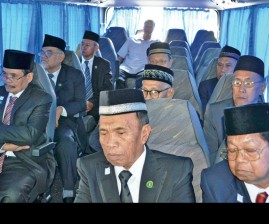Disarmament tough hurdle on road to peace, says British envoy

In a recent visit here, Lilie said “the tough task ahead would lie on the issue of disarmament.”
“This is a very sensitive issue that both sides should talk about and should come into an agreement,” he said.
Lillie cited the case of Northern Ireland, where the issue of DDR also became a sticky issue before the Good Friday Agreement came into being.
He said the Agreement, signed in April 1998 and enforced on December 2, 1999, was a “major political development that restored tranquility and harmony” there.
Lilie said when the DDR was finally realized, peace would at least be ensured in Mindanao.
Article continues after this advertisement“DDR can be realized slowly and decisively,” he said, adding that the Northern Ireland experience “can be duplicated here.”
Article continues after this advertisementPresidential Peace Adviser Teresita Deles earlier said that there was no denying that DDR, along with other issues, will not be easy to settle.”
Some MILF commanders were reportedly unwilling to lay down their arms even after the final peace deal was signed, citing the case of their former comrades under the Moro National Liberation Front.
When the MNLF signed a peace deal with the Ramos government in 1996, it retained its organizational structure, including its armed wing the Bangsamoro Armed Forces, and did not disarm.
Its educationally qualified guerrillas were even absorbed into the Philippine National Police and various military units.
The National Democratic Front, which has forged a tactical alliance with the MILF in the past, said the decommissioning of the Bangsamoro Islamic Armed Forces–the MILF’s armed wing– was a “devious scheming” of the government.
Jorge Madlos, NDF spokesperson for Mindanao, said the MILF should only agree to the DDR if the terms will not render it useless to protect the rights of the Moro people.
“Learning lessons from the past, the MILF should not easily relinquish its effective military strength at the whim of the reactionary government so that it can continue to defend the interests of the entire Moro people,” Madlos said in a statement e-mailed to the Inquirer last week.
“Without the BIAF, the MILF will be inadequate and incapacitated to protect the Moro people it represents,” he added.